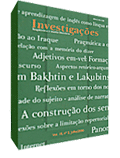Panorama dos Estudos Sobre Gêneros Textuais
Abstract
Neste ensaio apresentamos uma visão panorâmica sobre os estudos de gêneros textuais, ressaltando-se os paradigmas de diferentes correntes e como o conceito de gênero textual foi sendo formulado nessa trajetória, de modo que seja possível apresentar um quadro um pouco mais nítido dessa nova orientação nos estudos da linguagem. Esses estudos, que constituem as chamadas escolas – a norte-americana, a de Genebra, a de Bakhtin, entre outras –, têm orientado as análises de gêneros na perspectiva de que esses sejam considerados em seus aspectos sociocomunicativos e funcionais, e não em seus aspectos formais (estruturais ou lingüísticos).
References
ADAM, Jean-Michel. 1999. Lingüistique textuelle: Des genres de discourse aux textes. Paris: Nathan.
BAKHTIN, M./ VOLOCHINOV. 1999. Marxismo e Filosofia da Linguagem. 9. ed. São Paulo: Hucitec.
BAKHTIN, M.2000. Estética da Criação Verbal. 3. ed. São Paulo: Martins Fontes.
BAZERMAN, Charles. 2000. Letters and the social grounding of differentiated genres. In: BARTON, David. & HALL, Nigel. Letter Writing as a Social Practice. Amsterdam / Philadelphia: John Benjamins Publishing. p. 15-29.
______. Systems of Genres and the Enactment of Social Intentions. In:
FREEDMAN, Aviva & MEDWAY, Peter. Genre and the new rethoric. UK/USA: Taylor & Francis Publishers, 1994. (p. 79-101).
______. Theories of Genres: The Shape of Communicative Action. (Course – Spring, 1995. English Department University of California, Santa Barbara). Disponível em: http://www.english.ucsb.edu/faculty/bazerman/. Acesso em: março
de 2003.
BRONCKART, Jean Paul. Genres de textes, types de discours et opérations psycholinguistiques. Voies-Livres, Lyon (sd).
______. Atividade de linguagem, textos e discursos: por um interacionismo sócio-discursivo. São Paulo: EDUC, 1999.
CUNHA, Dóris de A. C. O funcionamento dialógico em notícias e artigos de opinião. In: CYSNEIROS, Paulo G. Ler e escrever na Universidade. Disponível em: cysne@ufpe.br, 2002.
DOLZ, Joaquim & SCHNEUWLY. Genres et progression en expression orale et écrite. Éléments de réflexions à propos d’une expérience romande. Enjeux Revue de Didactique du Français. 37/38. 1996. p. 48-74.
FIORIN, José Luiz e BARROS, Diana Pessoa de. (orgs)1999. Dialogismo,
Polifonia, Intertextualidade. São Paulo: EDUSP.
FREEDMAN, Aviva & MEDWAY, Peter. 1994. Genre and the new rethoric.
UK/USA: Taylor & Francis Publishers.
GARCEZ, Lucília. 1998. A escrita e o outro: os modos de participação na
construção do texto. Brasília: Ed. UNB.
MACHADO, Anna Rachel.1998.Gêneros de textos, heterogeneidade textual e
questões didáticas. ABRALIN, na 50ª Reunião da SBPC, Natal. Simpósio sobre gêneros do discurso: algumas abordagens. p. 33 a 65.
MARCUSCHI, Luiz A. Gêneros Textuais: definição e funcionalidade. In:
DIONÍSIO, Ângela; MACHADO, Anna; BEZERRA, Maria (orgs). 2002. Gêneros Textuais & Ensino. Rio de Janeiro: Lucerna. p. 19-36.
MILLER, Carolyn R. 1994 (1984) Genre as Social Action. In: FREEDMAN,
AVIVA & MEDWAY, Peter. Genre and the new rethoric. UK/USA: Taylor & Francis Publishers, p. 23-42.
______. Aristotle’s “special topics” in rhetorical practice and pedagogy. In: Rhetoric Society Quarterly. XVII, 1987. p. 61-71.
______. Rhetoric and Community: the problem of the one and the many. In: ENOS, Theresa and BROWN, Stuart C. 1993. Defining the new rhetorics. London: Sage Publications. p. 79-94.
______. Rhetorical Community: The Cultural Basis of Genre. In: FREEDMAN, Aviva & MEDWAY, Peter. 19994. Genre and the new rethoric. UK/USA: Taylor & Francis Publishers. p. 67-78.
SCHNEUWLY, Bernard. 1994. Gêneros e tipos de textos: considerações
psicológicas e ontogenéticas. In: Y. Reuter (ed) Les Interactions Lecture-Écriture (actes du Colloque Théodile-Crel). p. 155-173. Bern: Peter Lang. (trad. de Roxane Helena Rodrigues Rojo).
SCHNEUWLY, Bernard & DOLZ, Joaquim. Les genres scolaires. Des pratiques langagières aux objets d'enseignement. Disponível em:
http://www.cndp.fr/zeprep/oral/articles/art_bs.htm. Acesso em março de 2003.
SWALES, John M. 1990.Genre Analysis: English in academic and research settings. Cambridge: Cambridge University Press.
______. 1992. Re-thinking genre: another look at discourse community effects. Apresentado no “Re-thinking Genre Colloquium, Universidade de Carleton, Ottawa, abr. [Tradução de Benedito Gomes Bezerra – Repensando gêneros: uma nova abordagem ao conceito de comunidade discursiva].
______. 2003. Academic Writing for Graduate Students. 2nd. ed. (Unit Five) Writing Summaries. (por e-mail).
Downloads
Published
How to Cite
Issue
Section
License
Copyright (c) 2005 Vicentina Ramires

This work is licensed under a Creative Commons Attribution 4.0 International License.
Authors who publish with Revista Investigações agree to the following terms:
Authors retain copyright and grant the journal right of first publication with the work simultaneously licensed under the Creative Commons Attribution 4.0 International (CC BY 4.0) license that allows others to share the work with an acknowledgement of the work's authorship and initial publication in this journal.
Authors are able to enter into separate, additional contractual arrangements for the non-exclusive distribution of the journal's published version of the work (e.g., post it to an institutional repository or publish it in a book), with an acknowledgement of its initial publication in this journal.
You are free to:
Share — copy and redistribute the material in any medium or format for any purpose, even commercially.
Adapt — remix, transform, and build upon the material for any purpose, even commercially.
The licensor cannot revoke these freedoms as long as you follow the license terms.
Under the following terms:
Attribution — You must give appropriate credit , provide a link to the license, and indicate if changes were made . You may do so in any reasonable manner, but not in any way that suggests the licensor endorses you or your use.
No additional restrictions — You may not apply legal terms or technological measures that legally restrict others from doing anything the license permits.

